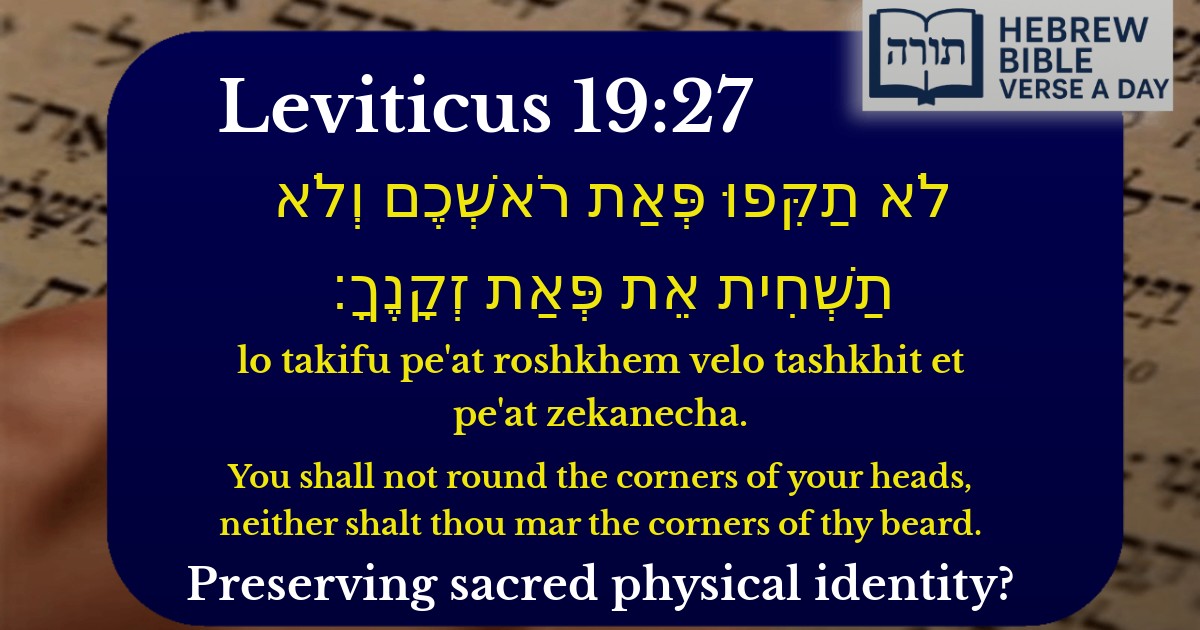Join Our Newsletter To Be Informed When New Videos Are Posted
Join the thousands of fellow Studends who rely on our videos to learn how to read the bible in Hebrew for free!
Hebrew Text
לֹא תַקִּפוּ פְּאַת רֹאשְׁכֶם וְלֹא תַשְׁחִית אֵת פְּאַת זְקָנֶךָ׃
English Translation
You shall not round the corners of your heads, neither shalt thou mar the corners of thy beard.
Transliteration
Lo takifu pe'at roshkhem velo tashkhit et pe'at zekanecha.
Hebrew Leining Text
לֹ֣א תַקִּ֔פוּ פְּאַ֖ת רֹאשְׁכֶ֑ם וְלֹ֣א תַשְׁחִ֔ית אֵ֖ת פְּאַ֥ת זְקָנֶֽךָ׃
לֹ֣א תַקִּ֔פוּ פְּאַ֖ת רֹאשְׁכֶ֑ם וְלֹ֣א תַשְׁחִ֔ית אֵ֖ת פְּאַ֥ת זְקָנֶֽךָ׃
🎵 Listen to leining
Parasha Commentary
📚 Talmud Citations
This verse is quoted in the Talmud.
📖 Makkot 20b
The verse is discussed in the context of the prohibitions against rounding the head and destroying the beard, as part of the broader discussion on the commandments related to personal appearance and mourning practices.
📖 Kiddushin 35b
The verse is referenced in a discussion about the applicability of certain commandments to women, with the sages debating whether the prohibition against rounding the head and marring the beard applies to both men and women.


Prohibition Against Shaving the Head and Beard
The verse לֹא תַקִּפוּ פְּאַת רֹאשְׁכֶם וְלֹא תַשְׁחִית אֵת פְּאַת זְקָנֶךָ (Vayikra 19:27) prohibits two distinct acts:
Spiritual and Ethical Significance
The Sefer HaChinuch (Mitzvah 252) explains that these prohibitions serve to distance the Jewish people from idolatrous practices and cultivate a distinct appearance that reflects holiness. The beard, in particular, is seen as a symbol of dignity and wisdom (Vayikra Rabbah 27:6).
Halachic Details
According to the Shulchan Aruch (Yoreh De'ah 181):